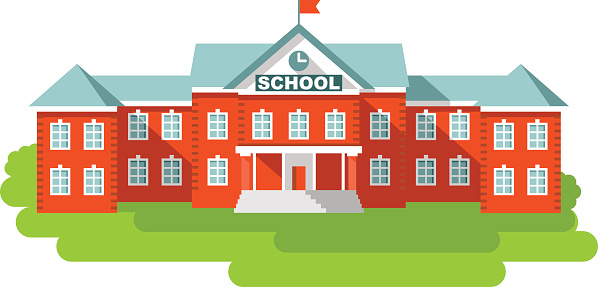Discover the Benefits of Advocacy: Save Temecula Schools
Discover the Benefits of Advocacy: Save Temecula Schools
Blog Article
Understanding the Significance of Schools in Child Development and Community Growth
Schools' interaction with local communities via service-learning campaigns reinforces the bond between family members and academic establishments. This symbiotic partnership underscores the value of schools in nurturing energetic citizenship and lifelong discovering routines.
Academic Success
Academic accomplishment acts as a keystone of youngster advancement, supplying the foundation upon which future discovering and success are built. Colleges play a crucial duty in fostering this academic growth, providing structured environments where children can acquire vital understanding and cognitive skills. Standardized curricula guarantee that trainees gain efficiency in core subjects such as mathematics, science, and language arts, which are important for both higher education and professional possibilities.
Along with passing on basic academic abilities, colleges also cultivate essential reasoning, analytic capacities, and intellectual inquisitiveness. These cognitive proficiencies are vital for navigating intricate real-world situations and adjusting to the ever-evolving needs of the modern-day workplace. Teachers, as facilitators of learning, utilize varied pedagogical approaches to deal with varied knowing designs, thus making the most of specific student potential.
Furthermore, academic success is carefully connected to self-confidence and motivation. Youngsters who experience academic accomplishments are much more most likely to create a positive self-concept and a long-lasting interest for knowing. Colleges likewise use numerous resources, such as collections and innovation, which additionally enhance the academic experience and prepare students for a highly innovative society.
Social Ability Growth
Beyond academic accomplishment, the function of institutions in social ability development is indispensable. Schools work as a primary location for youngsters to find out and practice important social abilities such as teamwork, interaction, and conflict resolution. In the organized setting of a classroom, trainees connect with peers, teachers, and various other institution team, providing various chances to create these important capabilities.
Efficient social ability advancement in institutions is assisted in with group tasks, joint tasks, and extracurricular programs. These communications assist trainees understand social standards, construct empathy, and promote a feeling of community. Group assignments show students how to work with each other in the direction of a common objective, listen to various point of views, and navigate differences constructively.

The farming of social skills during academic year lays a foundation for future personal and specialist partnerships. Save Temecula Schools. As trainees develop, the ability to efficiently team up and interact comes to be increasingly crucial, emphasizing the school's vital duty in all natural kid advancement
Exposure to Diversity
Direct exposure to variety in schools is fundamental to cultivating an inclusive state of mind and broadening students' viewpoints. Schools act as a microcosm of the wider society, and experiencing diverse cultures, languages, and socioeconomic backgrounds within this atmosphere equips pupils with vital skills for browsing an increasingly globalized globe. This exposure urges empathy, minimizes bias, and promotes common regard among peers.
Research shows that pupils who engage with peers from different histories exhibit better problem-solving skills and imagination. This understanding of variety prepares pupils for future work environments that worth multicultural capability - Save check it out Temecula Schools.

Neighborhood Engagement
The advantages of varied classrooms prolong past the college walls, promoting a solid feeling of neighborhood engagement among students. By connecting with peers from different social, socioeconomic, and ethnic histories, pupils acquire a wider perspective and a recognition for diversity. This exposure encourages them to end up being energetic people who agree to contribute positively to their communities.
Institutions that highlight area interaction often integrate service-learning projects, which permit trainees to address real-world troubles while using academic skills. These jobs not only improve trainees' understanding of their coursework yet also instill a sense of obligation and empathy. Partnerships in between schools and regional organizations offer pupils with possibilities to participate in community events, even more strengthening their role as aggressive neighborhood participants - Save Temecula Schools.
Additionally, parental and community involvement in schools enhances the bond between academic organizations and the areas they offer. With these efforts, colleges play a pivotal duty in nurturing community interaction and cultivating societal development.
Lifelong Understanding Behaviors
Creating lifelong learning behaviors is important for a kid's constant growth and flexibility in an ever-changing world. Schools play a critical function in instilling have a peek at this site these behaviors by creating an environment that cultivates inquisitiveness, essential thinking, and a love for knowledge. Via extracurricular activities and varied educational programs, educators encourage trainees to check out different subjects, analyze information seriously, and apply their finding out to real-world situations.

Moreover, schools offer a structured atmosphere where children can establish self-discipline and time administration skills, both of which are crucial for constant learning. By stressing the significance of establishing goals, reviewing progression, and adjusting approaches, schools prepare students to browse the complexities of adult life, ensuring they remain lifelong learners and factors to culture.
Final Thought
Finally, colleges are essential in cultivating child advancement and community growth by providing atmospheres for academic success, social ability growth, and direct exposure to variety. Via joint projects and communications, colleges improve vital reasoning, empathy, and communication abilities. Community involvement initiatives additionally reinforce the bond between universities and local neighborhoods. Ultimately, institutions cultivate long-lasting learning behaviors, equipping individuals with the necessary knowledge and skills to add positively to culture.
In the structured atmosphere of a class, students communicate with peers, teachers, and other college staff, supplying numerous possibilities to develop these crucial capabilities.
In essence, direct exposure to variety within colleges not just enriches individual students however additionally enhances the social material of the community as a whole.
The advantages of varied classrooms extend beyond the school walls, promoting a strong sense of community interaction among trainees.Institutions that emphasize community engagement frequently include click site service-learning tasks, which enable trainees to resolve real-world issues while using academic skills. Collaborations in between colleges and local organizations offer trainees with opportunities to get involved in neighborhood occasions, further solidifying their function as positive area members.
Report this page